Search Results
Showing results 41 to 60 of 253

Toilet Paper Solar System
Source Institutions
In this activity, learners build a scale model of the solar system using a roll of toilet paper.

Weather Stations: Temperature and Pressure
Source Institutions
In this activity, learners discover the relationship between temperature and pressure in the lower atmospheres of Jupiter and Earth.
Up, Up and Away with Bottles
Source Institutions
In this activity, learners make water rockets to explore Newton's Third Law of Motion. Learners make the rockets out of plastic bottles and use a bicycle pump to pump them with air.
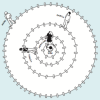
Human-powered Orrery
Source Institutions
In this space science activity, learners work together to create a human-powered orrery to model the movements of the four inner planets.
Light on Other Planets
Source Institutions
In this math-based activity, learners model the intensity of light at various distances from a light source, and understand how astronomers measure the amount of sunlight that hits our planet and othe
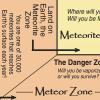
Space Rocks!: A Meteorite Game
Source Institutions
In this board game, learners explore the origins of meteors, meteoroids, and meteorites as well as the their characteristics and importance. They also discover some misconceptions about meteors.

Height Sight
Source Institutions
In this activity, learners build a tool called an inclinometer that can find the height of any distant object, from a tree to the North Star.
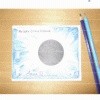
Eclipse Flipbook
Source Institutions
In this activity, learners make flipbooks of drawings showing the progression of a Total Solar Eclipse.
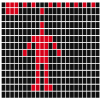
Is Anybody Out There?
Source Institutions
Learners listen to and try to decipher a radio message that was sent from Earth to possible intelligent civilizations.
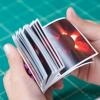
Solar Flare Flip Book
Source Institutions
In this activity, learners make their own flip book that shows real solar flares erupting from the Sun in November 2000. Step-by-step instructions are included with photos.
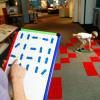
Exploring the Solar System: Mars Rovers
Source Institutions
In "Exploring the Solar System: Mars Rovers," participants learn about how scientists and engineers use robotic rovers and other vehicles to explore distant worlds, and experience some of the challeng
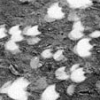
How to View a Solar Eclipse
Source Institutions
This is an activity to do when there is a solar eclipse!
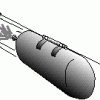
Balloon Rockets
Source Institutions
This is an activity about rockets. Learners will explore how rockets leave Earth's orbit and what it takes to make a launch successful.

Exploring the Universe: Space Guess Quest
Source Institutions
Space Guess Quest is a fun game that encourages participants to identify the many types of objects in space, from human-made spacecraft to nebulas, galaxies, stars, and worlds.

3-2-1 POP!
Source Institutions
In this physics activity, learners build their own rockets out of film canisters and construction paper.

Future Moon: The Footsteps of Explorers
Source Institutions
In this activity, learners drop impactors onto layers of graham crackers!

Infant Moon: Moon Mix!
Source Institutions
In this activity, learners investigate the Moon's infancy and model how an ocean of molten rock (magma) helped shape the Moon that we see today.
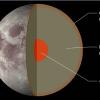
Recipe for a Moon
Source Institutions
In this activity, learners discover that the Moon, like Earth, is made up of layers of different materials. Learners work in teams to make models of the interiors of the Moon and Earth.
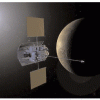
My Angle on Cooling: Effects of Distance and Inclination
Source Institutions
In this activity, learners discover that one way to cool an object in the presence of a heat source is to increase the distance from it or change the angle at which it is faced.
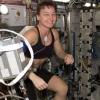
Space Stations: Beans in Space
Source Institutions
In this activity, learners perform 20 arm curls with cans that simulate the weight of beans on Earth versus the weights of the same number of beans on the Moon and in space.
